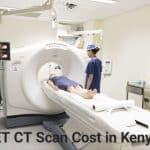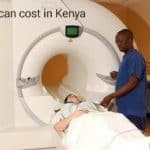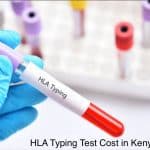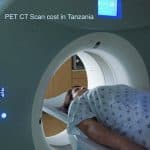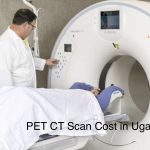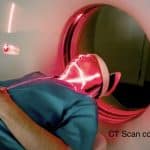Frequently asked questions-
1. What is a CT scan?
- A CT scan, or computed tomography scan, is a medical imaging technique that uses X-rays and computer processing to create detailed cross-sectional images of the body.
2. How does a CT scan work?
- CT scans work by taking multiple X-ray images from different angles and using computer algorithms to reconstruct detailed images of internal structures.
3. Is a CT scan the same as an MRI?
- No, CT scans use X-rays, while MRI (magnetic resonance imaging) uses magnetic fields and radio waves to create images.
4. Why would a doctor recommend a CT scan?
- Doctors recommend CT scans to diagnose and monitor conditions such as tumors, fractures, infections, and internal organ abnormalities.
5. Are CT scans safe?
- CT scans involve exposure to ionizing radiation, so they should be used judiciously. The benefits of accurate diagnosis usually outweigh the risks.
6. How long does a CT scan take?
- The actual scan takes only a few minutes, but the entire process may take longer, including preparation and waiting times.
7. Do I need to fast before a CT scan?
- Fasting is generally not required for a CT scan, but specific instructions will depend on the type of scan and the area being examined.
8. Can I have a CT scan if I’m pregnant?
- Pregnant women are generally advised to avoid unnecessary exposure to radiation, but the decision depends on the medical necessity. Always inform your healthcare provider if you’re pregnant or might be.
9. Are there any side effects of a CT scan?
- The most common side effect is exposure to radiation. Allergic reactions to contrast agents are rare but possible.
10. How much does a CT scan cost? – The cost varies depending on the type of scan, location, and healthcare facility. It can range from a few hundred to several thousand dollars.
11. Will my insurance cover the cost of a CT scan? – Insurance coverage depends on the type of insurance plan and the medical necessity of the CT scan. Check with your insurance provider for details.
12. Can children undergo CT scans? – Yes, children can undergo CT scans, but the radiation exposure is a consideration. Pediatric doses are adjusted to minimize risks.
13. Is contrast dye always used in CT scans? – No, not all CT scans require contrast dye. It depends on the type of scan and the information needed.
14. Can I eat or drink before a CT scan? – In most cases, you can eat and drink normally before a CT scan. However, specific instructions may vary.
15. What is the difference between a contrast-enhanced CT scan and a non-contrast CT scan? – A contrast-enhanced CT scan involves the use of a contrast agent to highlight certain structures or abnormalities, providing more detailed images.
16. Are there alternatives to CT scans? – Yes, alternatives include MRI, ultrasound, and X-rays, depending on the specific diagnostic needs.
17. Can I drive home after a CT scan? – In most cases, you can drive after a CT scan. However, if you received sedation, it’s advisable to arrange for transportation.
18. How often can I have a CT scan? – The frequency of CT scans depends on medical necessity. Excessive exposure to radiation should be avoided.
19. Can I have a CT scan if I have claustrophobia? – CT scanners are open and less confining than some other imaging devices, making them more tolerable for individuals with claustrophobia.
20. Does a CT scan show everything? – CT scans provide detailed images of internal structures but may not capture certain conditions. Your doctor will determine the appropriate imaging modality.
21. Can CT scans detect cancer? – Yes, CT scans are valuable for detecting tumors, assessing their size, and determining their location.
22. How do I prepare for a CT scan with contrast? – Preparation may include fasting, avoiding certain medications, and staying hydrated. Follow your healthcare provider’s instructions.
23. Can CT scans be performed on an outpatient basis? – Yes, many CT scans are done on an outpatient basis, and you can typically return home afterward.
24. Can I exercise before a CT scan? – Light exercise is usually fine, but intense physical activity might affect the quality of images in some cases.
25. Are there different types of CT scans for different body parts? – Yes, there are specialized CT scans for the head, chest, abdomen, pelvis, and other specific areas.
26. How do I minimize radiation exposure during a CT scan? – Radiologists use the lowest effective dose, and advancements in technology help minimize radiation exposure.
27. Can I have a CT scan if I have metal implants? – It depends on the type of metal and the area being scanned. Inform your healthcare provider about any metal implants.
28. Can I breastfeed after a contrast-enhanced CT scan? – In most cases, breastfeeding can be resumed after a contrast-enhanced CT scan.
29. Are there any age restrictions for CT scans? – CT scans can be performed at any age, but the decision is based on medical necessity and considerations for radiation exposure.
30. How quickly will I get the results of my CT scan? – Results are typically available within a few days. Your healthcare provider will discuss the findings with you during a follow-up appointment.


